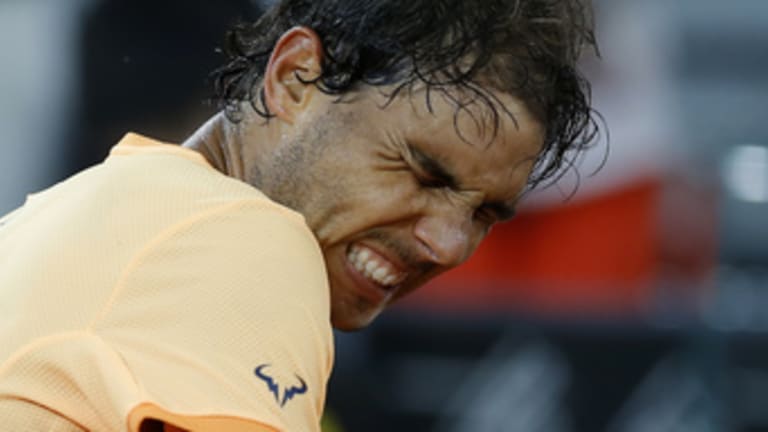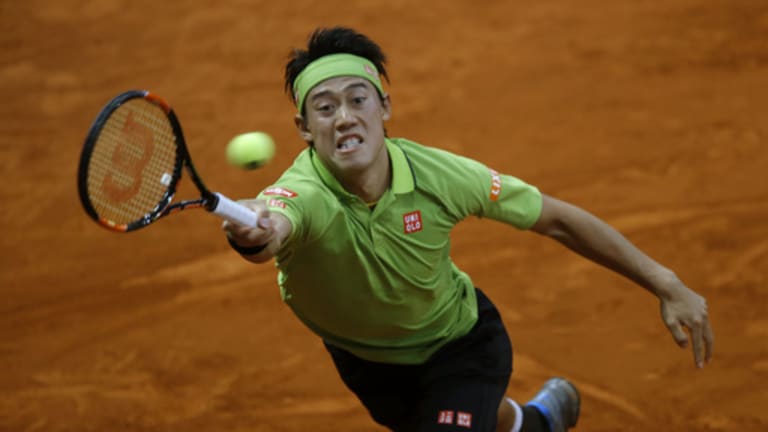Previewing the women's final, and men's semis, at the Mutua Madrid Open.
Let's not sugarcoat it: This hasn’t been a week to remember for the WTA. First Serena Williams dropped out, then Victoria Azarenka dropped out, then everyone else lost, then both of Saturday’s semis were duds. The tour probably can’t wait to move on to Rome, where, hopefully, Serena and Vika will be waiting. But first there’s a Madrid final to play.
To be fair, it can’t be said that everyone lost: One woman in the Top 16, Halep, did manage to reach the quarterfinals. Now she’s in the final, and while she beat just one other seeded player, Timea Bacsinszky, to get there, this could be an important week for the Romanian. Historically, Halep has had her slumps, but she’s always come out of them. A title here would inject her back into the French Open conversation. The last time she made the final in Madrid, she made the final in Paris, too.

